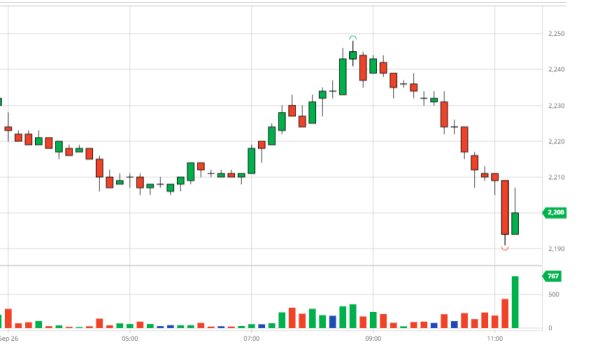The British government’s drastic tax cuts and the BoE’s expected sharp hike in interest rates sent British bonds sold off and the pound fell to a record low…

Robusta chart London 11/2022 session on September 26, 2022
At the end of the first session of the week, the price of Robusta coffee on ICE Europe – London continued to decline. The November spot term decreased by $28 to $2,204 per tonne and the January delivery term in January 2023 decreased by $23 to $2,196 per ton, significant increases. Trading volume in maverage breast.
On the contrary, the price of Arabica coffee on the ICE US floor – New York reversed to increase. The December spot futures rose 3.35 cents to 223.80 cents/lb and the March delivery term rose 2.40 cents to 216.50 cents/lb, strong gains. Trading volume quite above average.
The price of green coffee beans in the Central Highlands provinces decreased by 400-500 VND, down to range from 47,300 to 47,800 VND/kg.
Contributing to a common voice to strengthen the ability to fight inflation and prevent a world economic recession, the British government strongly cut taxes and the Central Bank (BoE) is expected to increase interest rates even more at the next meeting. in November, after having increased by 0.5% to 2.25%/year on September 22nd. This news made the London market quite volatile, British bonds sold off last session and the value of the British pound is currently falling to a record low, equivalent to the USD.
Meanwhile, long-term US Treasuries surged to 3.93%, their highest level since April 2010 and the Brazilian Reais continued its decline by 2.32% to $1 = $5,3760 R$. Arabica coffee prices rebounded when commodity funds balanced the value of speculative capital due to concerns that loan interest rates would increase further in the last quarter of the year.
Risk aversion pushed USDX higher, causing commodity purchasing power of emerging markets to continue to decline.
ANhan Van (giacaphe.com)
